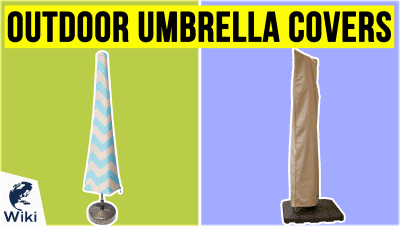6 Beautiful Places Where Californians Can Learn About Plants and Nature
In the modern age, it can be too easy for people to spend all of their time surrounded by constructed environments and technology. Taking a break and enjoying natural beauty can be a good way to unwind, get some fresh air, and learn new things. If you live in California, or are planning to visit, consider checking out these six lovely places where you can reconnect with nature. This video was made with Ezvid Wikimaker.
6 Beautiful Places Where Californians Can Learn About Plants and Nature
| Organization | Location |
|---|---|
| Esalen | Big Sur, CA |
| Mendocino Coast Botanical Gardens | Fort Bragg, CA |
| Ruth Bancroft Garden and Nursery | Walnut Creek, CA |
| Filoli | Woodside, CA |
| Center for Land-Based Learning | West Sacramento, CA |
| Theodore Payne Foundation | Sun Valley, CA |
Tips For Starting Your Own Garden
- Make sure you have all the tools you need
- Keep everything organized so nothing gets lost
- Use a stool to stay comfortable while you work
- Or avoid crouching down altogether by having a raised garden
- Light the garden so that you can enjoy it at night as well
- Remember to mark your plants so you know what you're growing
- If you're having trouble with pests, put up a fence
- Prune your plants regularly
- If you don't have a good environment outside, try growing an indoor garden
Getting Hooked On Nature
In Depth
Learning about plants and nature is not just a fun way to spend some time away from technology, but it also provides our environment with much needed care. In California, a number of gardens and organizations up and down the coast, dedicate their time to making sure anyone who wants to learn has access to knowledge. In no particular order, here are six beautiful places where Californians can learn about plants and nature.
#1 on our list is Esalen. Located in Big Sur California on twenty-seven acres overlooking the Pacific Ocean, Esalen hosts 20,000 visitors a year. Founded by Michael Murphy and Dick Price in 1962, Esalen is the birthplace of the human potential movement. Exploring and realizing human potential through experience, education, and research, was their founding mission. Esalen continues to fulfill a critical role today: exploring and promoting the interconnections between heart and mind, soul and body, and individual and society.
Each year Esalen sponsors pioneering initiatives and offers personal, spiritual, and social transformation programs for residents, interns, and workshop participants. Areas range from nature and sustainability, to mind and psychology, to arts and creativity. Guests can expect a daily menu of subjects to also include yoga, dance, meditation and other topics.
Guests can expect a daily menu of subjects to also include yoga, dance, meditation and other topics.
Esalen also boasts hot springs that look out over the ocean, and are available twenty-four hours per day, massage services, and an art barn. Guests can visit for a day, up to a week, or can apply for longer residency programs.
Up next at #2 is Garden by the Sea. Located in Fort Bragg, California, beside the Pacific Ocean, Garden by the Sea boasts more than eighty-five thousand visitors a year. Founded in 1961 by Ernest and Betty Schoefer, the Gardens were opened in 1966. Known for producing Rhododendrons, by 1992, Garden by the Sea had been transferred to the Mendocino Coast Recreation and Park District through grants from the California Coastal Conservancy.
Open most days of the year from 9am to 4pm, with extended hours for the summer, admission is about $15 per person. The main trails of the gardens are accessible all the way to the ocean, and well-mannered dogs are welcome as long as they are on leashes. Rhody's Garden Cafe is open seasonally, April through September, for regional cuisine overlooking the Perennial Garden.
The main trails of the gardens are accessible all the way to the ocean, and well-mannered dogs are welcome as long as they are on leashes.
The Gardens also have a nursery for a wide selection of plants to purchase, an education center that is A.D.A. accessible, and host master gardener classes, in conjunction with the University of California Cooperative Extension.
Coming in at #3 is the Ruth Bancroft Garden and Nursery. A world renowned garden in Walnut Creek, California, sitting on 3.5 acres, the Ruth Bancroft Garden and Nursery houses succulents and drought tolerant plants form around the world. Founded by Ruth Bancroft, who was born in 1908 and raised in Berkeley, California, her love for water conserving plants began in the 1950's when she began raising her first succulent.
The garden began as a project of love and a place for Ruth to create dynamic planting combinations using contrasting textures, forms, and colors through experiementing with the local climate. The gardens opened to the public in the early 1990's and still serve as an example of how stunning a dry garden can be.
The garden began as a project of love and a place for Ruth to create dynamic planting combinations using contrasting textures, forms, and colors through experiementing with the local climate.
Accessible, but not paved, with seating throughout, guests can find collections of aloes, agaves, yuccas, and echeverias. Both the garden and nursery, where plants can also be purchased, is open Tuesday through Sunday, from 10am to about 4pm. Admission to the gardens is about $10, and well behaved dogs on leashes are welcome.
Up next at #4 is Filoli. One of the last remaining historic estates on the San Francisco Penninsula, Fioli is home to a house, formal garden, estate trail, and nature preserve. Built in 1915, in Woodside, California, the formal garden was added between 1917 and 1929. It was not until Filoli's second owners, the Roth's, that the estate gained worldwide recognition.
Mrs. Roth lived there until 1975, when she then donated the house and formal gardens to the National Trust for Historic Preservation, so that future generations may be inspired and able to enjoy it. Open to the public Tuesday through Sunday from 10am until 5pm, admission is about $22.
Mrs. Roth lived there until 1975, when she then donated the house and formal gardens to the National Trust for Historic Preservation, so that future generations may be inspired and able to enjoy it.
Guests can look forward to learning more about Fioli's horticulture practices in the Garden Resource Center, walk the one mile long estate trail where the indigenous Ohlone used to live, and dine at the Quail's Nest Cafe. For those looking to learn in a more formal setting, class offerings include botanical art, art, floral design, and horticulture.
At #5 is the Center for Land-Based Learning. Headquartered in Winters, California, the goal of the Center for Land-Based Learning is to inspire, educate, and cultivate the future generations of farmers, agricultural leaders, and natural resource stewards.
Programs for both adults and youth, feature different tracks including student and landowner education and watershed stewardship programs, two-year apprenticeships for adults who want a career in agriculture, caring for our watersheds, and providing skills and knowledge to beginning farmers so that they can thrive. The application process for each program varies, but if accepted there are no fees to participate.
The application process for each program varies, but if accepted there are no fees to participate.
Finally at #6 is the Theodore Payne Foundation. Located on twenty-two acres in a canyon in the northeast part of the San Fernando Valley, the Theodore Payne Foundation is a full service native plant nursery, seed room, bookstore, art gallery, demonstration gardens, and hiking trails. The foundation was founded in 1960 to carry on Theodore Payne's work preserving the wild flowers of California, that were threatened by urban development.
Open Thursday through Saturday from 8:30am to 4:30pm, there is no admission charge, and friendly dogs on leashes are welcome. Focusing on the beauty and ecological benefits of native California plants, adult education programs include native plant horticulture, garden design, lawn alternatives, container gardening, California natural history, and attracting wildlife.

















